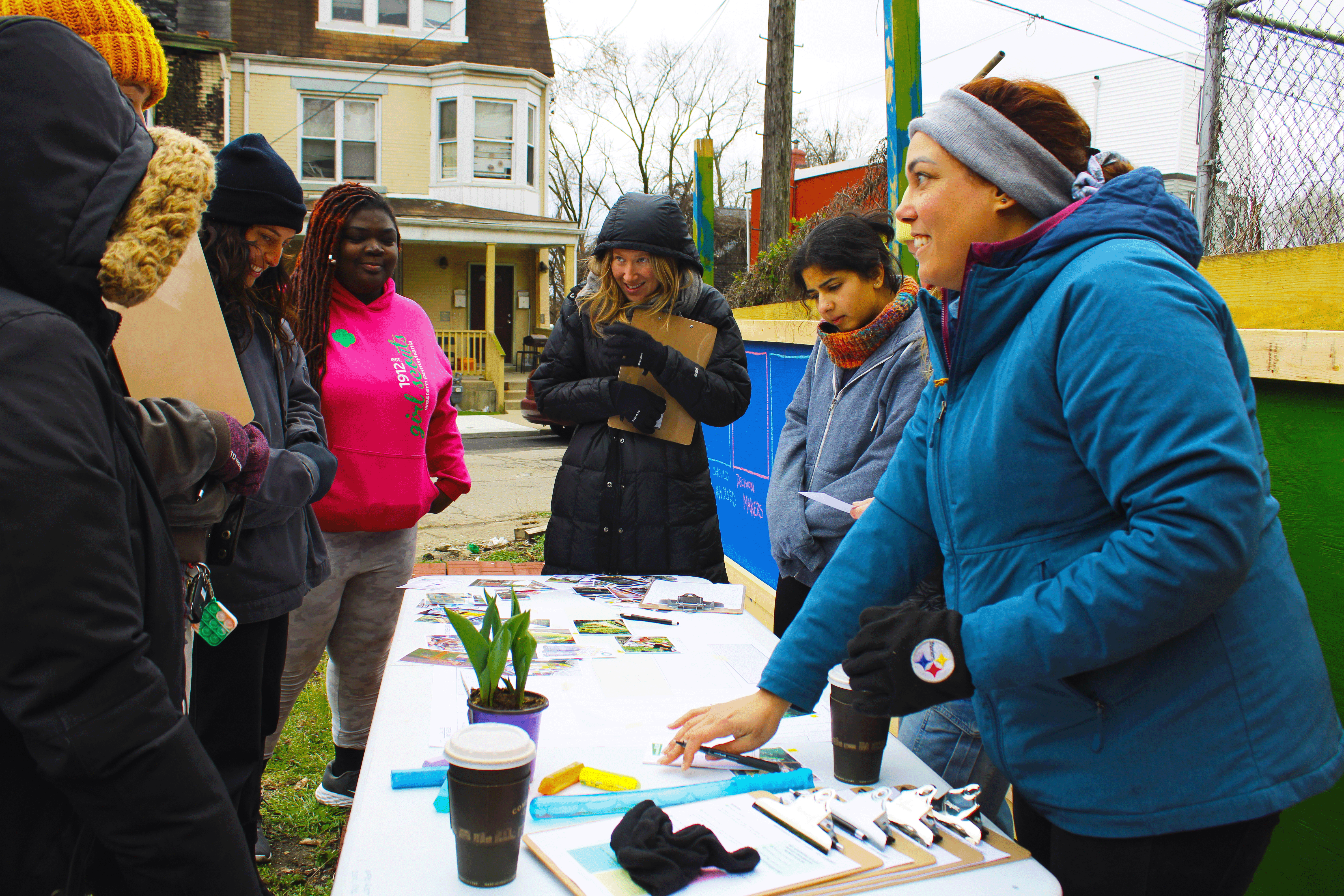By: Caroline Gerdes, Pop City Media, December 12, 2014
Trade-skills training in Wilkinsburg and Homewood. A mobilemarket that delivers healthy and affordable food to food desert areas. Community leadership training in Pittsburgh’s Hilltop neighborhoods.
These creative, innovative and collaborative projects and ideas are just a sampling of the investments totaling $478,000 recently announced by Neighborhood Allies. Funded through Neighborhood Allies’ Catalytic Awards, the programs aim to help transform struggling neighborhoods into more sustainable, healthier, safer and stronger communities.
Funds raised from local foundations, banks and some governmental organizations support the Catalytic Awards, according to Talia Piazza, Neighborhood Allies program manager for community resources and communications.
Neighborhood Allies, whose predecessor organization was the Pittsburgh Partnership for Neighborhood Development, launched in 2013 with the purpose of including 21st-century community development initiatives. As the Pittsburgh Partnership for Neighborhood Development, the organization awarded catalytic grants about four times a year. But, Piazza said, this is the organization’s first group of awards as Neighborhood Allies.
A total of seven awards have been made in the fall 2014 round, representing a new approach to investing in neighborhoods that support innovative, resident-driven development and revitalization strategies.
“These financial investments, coupled with intensive support from our talented staff and dedicated partners, will provide the needed resources to produce positive social impact and improve neighborhoods so that all residents are able to enjoy a better quality of life,” said Neighborhood Allies President Presley Gillespie.
Six priority communities across the City of Pittsburgh and neighboring suburbs received awards. Projects will address local issues and opportunities ranging from neighborhood leadership, wealth building, access to healthy foods, blight removal, workforce development and job placement initiatives.
The fall 2014 Catalytic grantees really do run the gamut.
Larimer Consensus Group was awarded $68,000 to hire the organization’s first staff person to coordinate resident representation and action-oriented participation in the revitalization and development of the neighborhood. Millvale Community Library received $75,000 to hire staff to guide development projects that improve community health through the EcoDistrict Sustainability Plan.
The Catalytic Grant provided $75,000 to Farm Truck Foods, which will pilot a mobile market program and food truck that provides universal access to whole, nutritious, affordable and local foods to residents living in food deserts or in communities with poor access to healthy food.
Community Workz, Inc. received $65,000 and strives to build capacity and strengthen the leadership at community organizations in Beltzhoover, Allentown and Knoxville.
Center that CARES was awarded $60,000 to launch Tech Central at the Jeron X. Grayson Community Center in the Hill District. Tech Central bridges the digital divide to 21st-century technology and connects the most vulnerable students to resources within the region and beyond.
Trade Institute of Pittsburgh received $75,000 to expand its facility and programming to address chronic unemployment in Wilkinsburg and Homewood and to reach individuals who have spent time in prison, juvenile centers or rehab facilities. The program offers comprehensive, stable and effective trade-skill and life-skill training. The training aims to make students employable and offers a chance to increase earning potential and to obtain a job outside of the minimum wage job market.
CARE Ownership was awarded $60,000 to implement a wealth-building program that trains and empowers current Larimer residents to become owner-occupants of multi-unit, formerly blighted properties.
“This [program] is truly catalytic,” Piazza said about the landlord training program. “It’s really creating opportunities for real residents [to contribute] to the revitalization of their neighborhood.”
CARE Ownership uses existing properties and trains residents how to manage, operate and own neighborhood real estate, Piazza said, adding that the program creates change with a fast turnaround, removing blight and creating a residence while teaching real-life skills.
For more details on the fall 2014 awardees and their projects, visit www.neigborhoodallies.com. Neighborhood Allies plans to hold another Catalytic Grant funding round in early 2015.
Source: Talia Piazza, Neighborhood Allies

